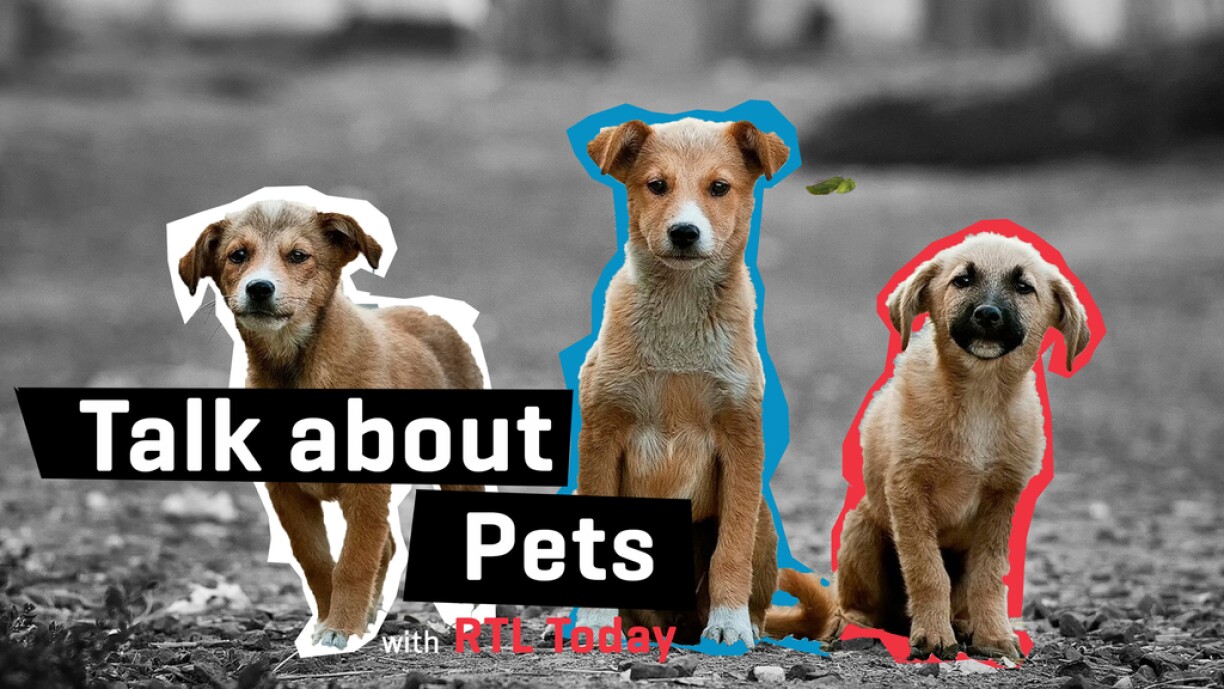
Gudde Moien and welcome back for another Luxembourgish Lesson! Looking back at the lessons we’ve done so far, we couldn’t help but notice that we had a bit of a bias towards humans so far. And this despite the fact that the Grand Duchy has an ever-growing population of non-human residents, specifically pets.
In this lesson, we are going to fix this injustice and learn how we can talk about little and not-so-little friends in Luxembourgish. As far as animal names are concerned, you will have to learn some new vocab. For this reason, we decided to include another vocabulary list about animals. Besides pets, the list also includes the Luxembourgish names of wild animals just in case you really want to tell your colleagues about the funny squirrel you saw last weekend.
You can find the list at the end of this week’s Language Basics article, which is an extra special treat this week. Instead of focussing on one ‘big’ topic, we take a look at three ‘smaller’ aspects of the Luxembourgish language. Side note from the author: The third one is particularly fascinating – be sure to give it a read!
So, how do we talk about our pets? Below are some phrases that you may find useful:
I still need to take my dog out for a walk.
Ech muss nach mat mengem Mupp spadséiere goen / trëppele goen / Gassi goen.
Good to know: Here is your reminder that there are two words for ‘dog’ in Luxembourgish: Hond (which is closely related to the German ‘Hund’) and Mupp.
Did you remember to buy cat food?
Hues de dru geduecht, Kazefudder ze kafen?
We gifted them a collar for their new dog.
Mir hunn hinnen ee Collier fir hiren neien Hond geschenkt.
Good to know: Collier can also mean ‘necklace’. If you want to avoid any confusion, you can also use Halsband, which exclusively translates to a collar for animals.
Remember to clean the cat’s litter box.
Denk drun, d’Kazentoilette propper ze maachen.
You can pet him, he’s very friendly.
Du kanns hien heemelen, et ass ee ganz Léiwen.
Our cat goes crazy over the new cat tree that we bought for her.
Eis Kaz ass geckeg no dem neie Krazbam, dee mir hir kaf hunn.
In this area, you need to keep your dog on a lead.
An dësem Beräich muss de däi Mupp un der Léngt halen.
My son wanted a hamster for his birthday.
Mäi Jong wollt een Hamster fir säi Gebuertsdag.
My uncle used to have an aquarium.
Mäi Monni hat an der Zäit mol een Aquarium.
My parents gifted me two guinea pigs for my 10th birthday.
Meng Elteren hu mir fir mäin zéngte Gebuertsdag zwee Mierschwéngercher geschenkt.
I didn’t know that you have three pet turtles!
Ech wousst net, datt s du dräi Schildkröten als Hausdéieren hues!
We were quite surprised when we found out that she had a pet parrot.
Mir waren zimmlech iwwerrascht, wéi mir rausfonnt hunn, datt hatt ee Papagei als Hausdéier huet.
As mentioned before, this lesson comes with its own vocabulary list. But if there are any other words you want to look up, you can always head on over to LOD.lu
Lesson 1 – How to introduce yourself
Lesson 2 – How to talk to your neighbour about the weather
Lesson 3 – How to ask for directions
Lesson 4 – How to tell time and dates
Lesson 5 – How to schedule a meeting
Lesson 6 – Chat with the cashier at the supermarket
Lesson 7 – How to order at cafés and bakeries
Lesson 8 – How to decipher a menu and order food
Lesson 10 – How to ask for medical assistance
Lesson 11 – How to talk about past experiences
Lesson 12 – How to talk about your plans for the future
Lesson 13 – Holidays and travelling
Lesson 14 – How to say that you like something
Lesson 15 – How to express your dislike
Lesson 16 – Elections and politics
Lesson 17 – How to… talk about sports
lesson 18